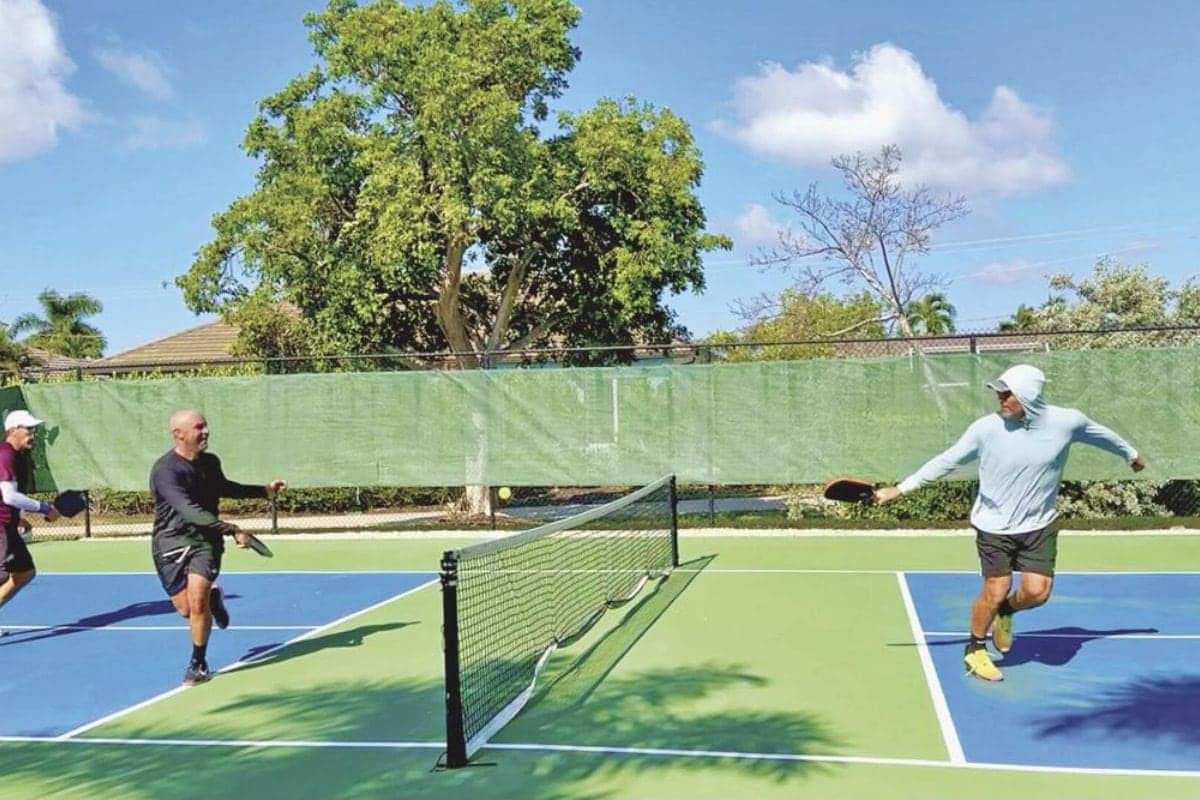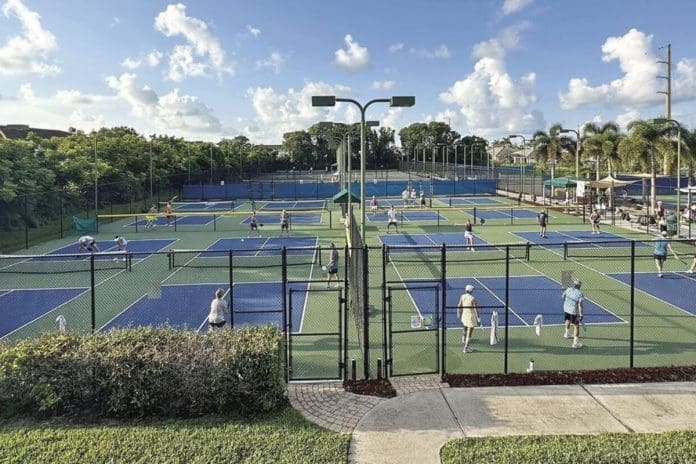Marco Island Racquet Center: Marco Island’s transformation of its Racquet Center into a premier pickleball destination is gaining momentum, although amid community discord. City officials have given the green light for the initial phase of this ambitious project, marking a pivotal shift from tennis to pickleball with the installation of seven courts. This decision follows deliberations among council members and input from residents, particularly those residing near the aging Racquet Center on San Marco Road.
Community Controversy Over Noise
The transition to pickleball has stirred controversy, primarily centered around potential noise disturbances. Councilman Rich Blonna and other concerned neighbors have voiced apprehensions over the sustained sound levels characteristic of pickleball matches, a departure from the quieter ambiance associated with tennis. A recent neighborhood meeting showed these anxieties, focusing on proposed sound attenuation measures and variances required to advance the project.
Tennis versus pickleball “is a totally different experience, sound wise” Blonna said. “It’s the type of sound that is a continuous sound, that’s gotten me concerned.” Those same panels were discussed at Monday’s City Council meeting. Blonna said he doesn’t see how mitigation will help the sound enough that “those folks in San Marco Villas aren’t going to go crazy.”
“This is a great time to find out how these panels work,” Smith said of the Phase 1 courts.
At the meeting held on May 31, residents, predominantly from the nearby Marco Villas condo community, expressed worries about noise pollution and how it might disrupt their daily lives. Engineers, city officials including Marco Community Affairs Director Dan Smith, and representatives from LJA Engineering, Inc., and the Fleet and Facilities department were present to address these concerns. Samples of sound dampening panels were showcased, which generated discussions among attendees and were subsequently reviewed at a subsequent City Council session.
“The main issue for us is the noise level. It affects us. It affects the people that live there. It affects how they go about their day.” – (David Cadwell)
Variances Approved Amidst Opposition
Despite vocal opposition, the City Council granted variances necessary for Phase 1 of the pickleball conversion project. These variances included adjustments to landscaping buffer zones and parking requirements to accommodate the reduced number of courts. The decision aimed to balance community concerns with the city’s strategic vision to modernize recreational facilities in line with evolving preferences.
Councilman Blonna, while voting against the variances, demanded for alternative solutions such as locating a separate pickleball center on newly acquired city property elsewhere on Marco Island. His stance reflects ongoing tensions between embracing pickleball’s popularity and mitigating its potential impacts on residential quality of life.
Future Phases and Funding Prospects
Looking forward, Marco Island is preparing to pursue Phase 2 of the pickleball conversion, dependent upon securing necessary funding. This phase aims to replace additional tennis courts with a total of 24 state-of-the-art pickleball courts. Funding avenues include potential grants from Collier County’s Tourist Development Council, which redistributes tourism development taxes to support local infrastructure projects.
“Phase 2 has not been approved or funded. This is a great time to find out how these panels work.” – (Smith)
“I do think we owe these neighbors as much protection as we can afford,” he said. “We would like to attenuate the sound as much as possible.” Currently there is no sound proofing at the facility.
Phase 1 of the project, slated to commence construction in September, received a budget allocation of $786,000 for Fiscal Year 2024. Funding sources include proceeds from a 1-cent infrastructure sales tax and Parks and Recreation impact fees, showing the city’s commitment to enhancing recreational amenities amidst fiscal prudence.
City officials and stakeholders recognize the importance of implementing effective sound mitigation measures to address community concerns adequately. The proposed sound barriers, integrated with court fencing, represent a proactive approach to minimizing noise impacts and preserving residential tranquility. As Marco Island navigates the complexities of recreational facility modernization, balancing community feedback with strategic urban planning remains paramount in shaping its future landscape.

News in Brief: Marco Island Racquet Center
The Marco Island Racquet Center is undergoing a transformation to meet the rising demand for pickleball, despite local concerns about noise disturbances. City officials plan innovative solutions like sound barriers to address community worries, funded by infrastructure sales tax and grants for future expansions.
Also read: JOOLA Takes Legal Action Against USAP Over Gen3 Paddle Ban
